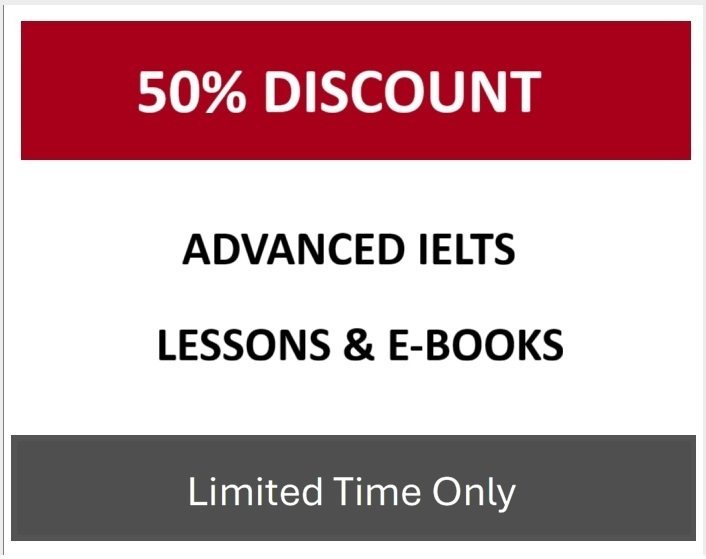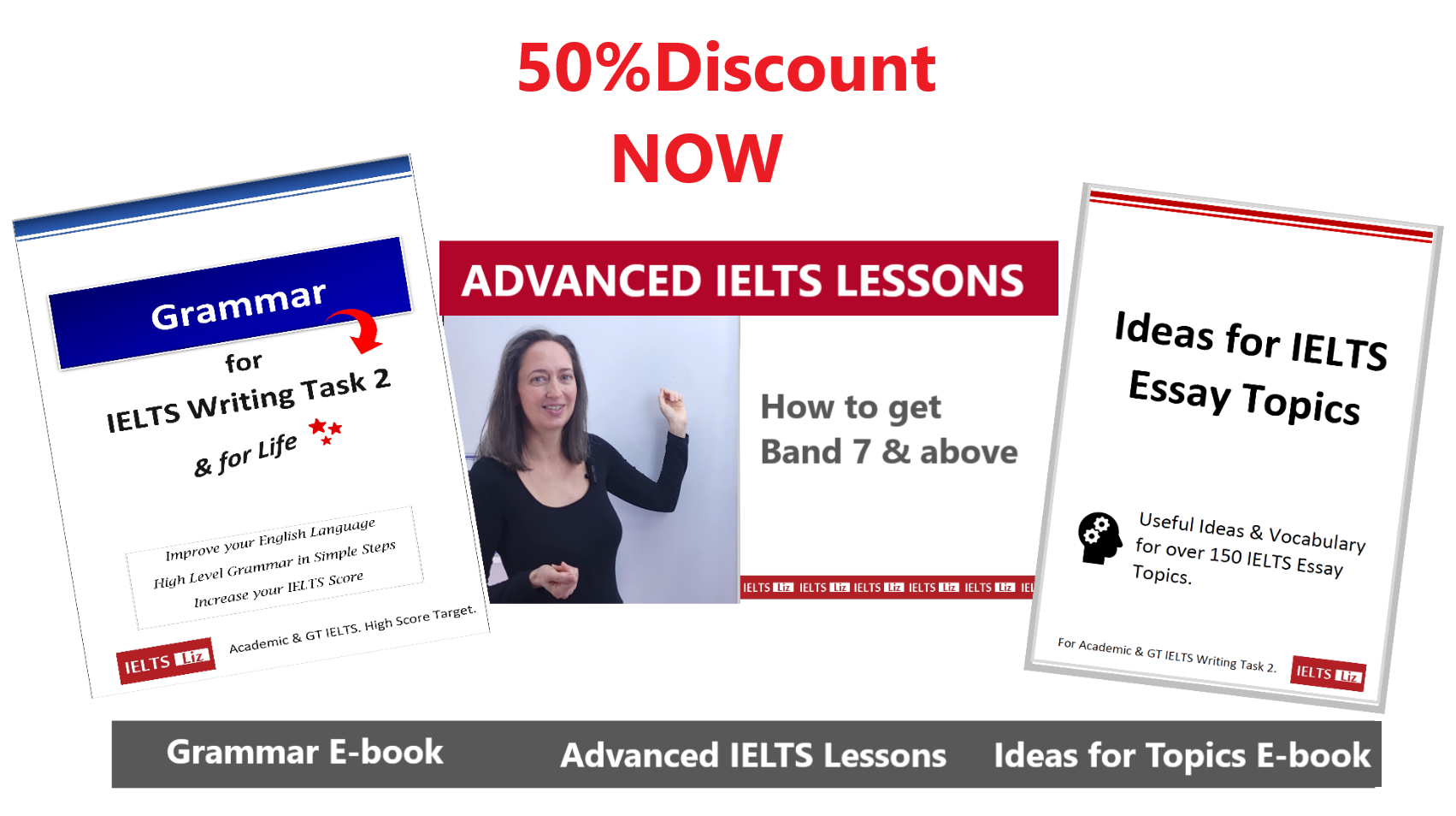FINAL DAY for BIG DISCOUNTS on Advanced IELTS Lessons & E-books – Don’t miss your last chance!
- Grammar E-book = 65% Discount ***
- Ideas for Essay Topics E-book = 60% Discount ***
- Advanced IELTS Writing = 50% Discount ***
Maximise your IELTS band score now. Click below:
All details of E-books and Advanced Lessons are provided in my store. E-books can be downloaded to your laptop for your personal use forever. Advanced lessons are streamed online with access for 3 years. These items are designed to provide you with the right techniques and skills to maximise your score.
All the best Liz








